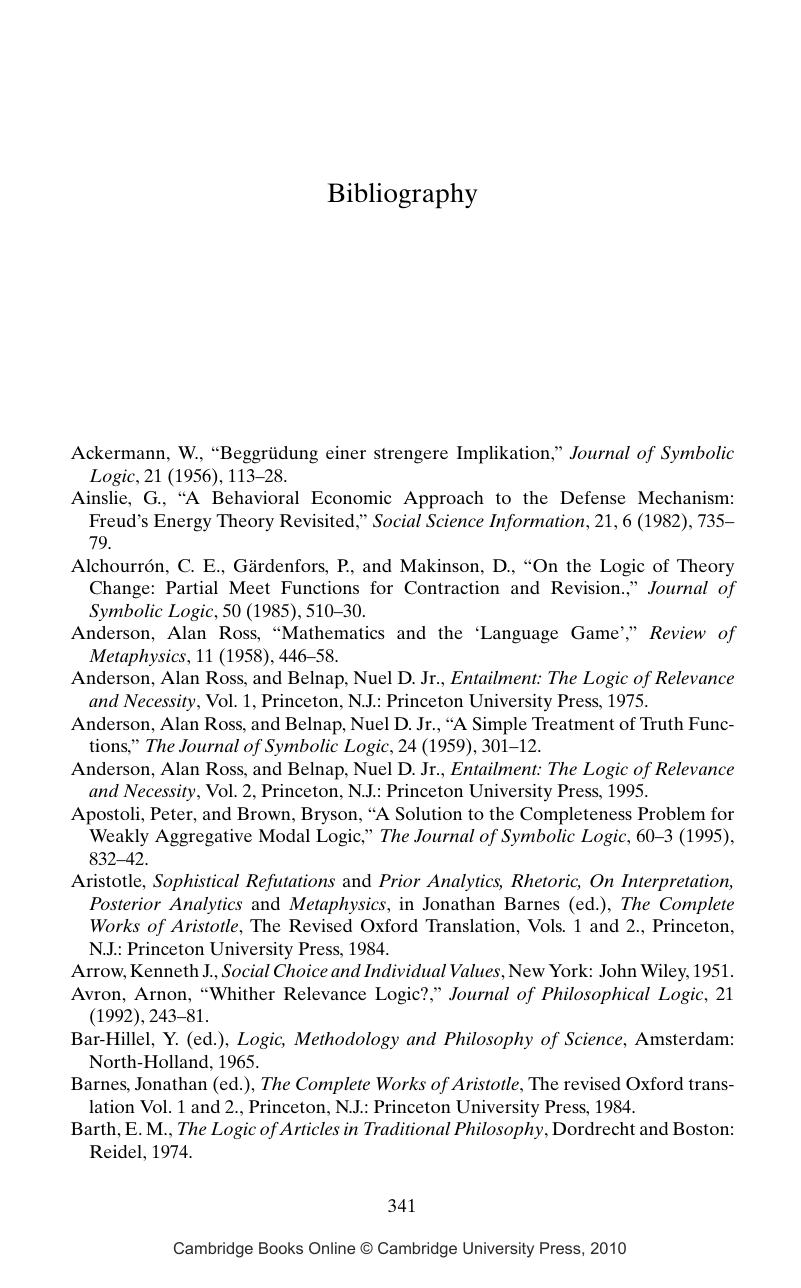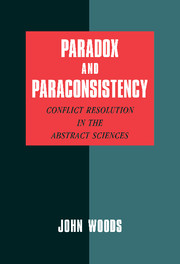Bibliography
Published online by Cambridge University Press: 05 June 2012
Summary

- Type
- Chapter
- Information
- Paradox and ParaconsistencyConflict Resolution in the Abstract Sciences, pp. 341 - 358Publisher: Cambridge University PressPrint publication year: 2002



